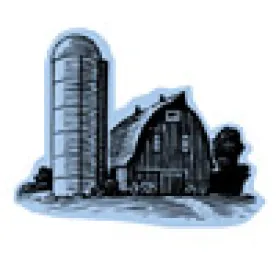In a ruling which is the first of its kind, a federal judge in Washington decided last week that manure, when not used as a beneficial fertilizer or soil conditioner, can be considered solid waste as the term is defined in the federal Resource Conservation and Recovery Act (“RCRA”), letting stand an action brought by anti-agriculture groups pursuant to RCRA’s citizen suit provision. The decision was issued on January 14, 2015 in response to cross motions for summary judgment (and other evidentiary motions) brought in a case that has been pending since 2013. Plaintiffs brought the action against the Cow Palace Dairy, housing 11,000 cows as of 2012 primarily on outdoor lots, and affiliated companies, alleging that the farms’ manure storage and management practices constituted the disposal of solid wastes and created an “imminent and substantial endangerment”. The federal RCRA statute allows citizens to bring suit after providing notice to the government acting as private attorneys general. Importantly, the statute provides for the recovery of attorneys’ fees and costs in a successful action.
After reviewing the ways in which an appropriately implemented nutrient management plan can reduce environmental threats while being beneficial to crop production, the judge concluded that under the facts of this case the farms did not adequately follow their plan. The judge specifically found that the farms did not conduct sufficient soil and manure sampling, and when samples were taken the farms did not consider the lab results when determining where, when and how much manure to apply to fields. The judge also found the farmers failed to consider actual crop yields, failed to take any nutrient credits from prior applications and otherwise failed to follow some of the most basic tenets of nutrient management.
The judge also found no compelling evidence that the farms' manure storage facilities were constructed in compliance with applicable technical standards developed by the U.S. Department of Agriculture’s Natural Resource Conservation Service (NRCS). NRCS issues national technical standards for manure storage facility designs and nutrient management plans, among other things. States utilize these national standards in the development of state-specific technical standards for purposes of cost-shared practices and enforcement. In this case, the judge found that even if the storage facilities were designed in accord with NRCS technical standards, the designed leakage rate may be allowing nitrate from manure to "accumulate in the soil at rates possibly higher than three million gallons per year" and the leaked manure is "discarded material" and a RCRA solid waste. The judge did note that the NRCS technical standards in Washington "are merely guidelines, rather than legal requirements."
In Wisconsin and many other states, livestock operations with more than 1,000 animal units are required to obtain a permit to operate to implement an approved nutrient management plan, obtain field-by-field approvals, take soil and manure samples, update the plan annually and provide documentation that the plan was followed for all manure applications. Permitted livestock operations are also required by law to design and construct manure storage and other reviewable facilities in compliance with the NRCS technical standards that have been incorporated by reference into the state's administrative code and individual permits. A farm that fails to comply with these requirements would be subject to enforcement action for violating state law and the terms and conditions of its operation permit. Additionally, if this judge’s ruling is upheld after appeal and followed in other jurisdictions, it could subject any farms that fail to follow these rules (whether or not of a size that requires a permit) to suit by opponents or activists hostile to production agriculture.
The decision comes on the heels of the Wisconsin Supreme Court holding that livestock manure is a “pollutant”, read more about that here. Although the facts concerning this decision from Washington are very specific to the farmer defendants, and the decision itself (if either not appealed or upheld after appeal) is not binding legal precedent in other jurisdictions, it provides anti-agriculture litigation machines with another arrow in their quiver to assert against family farmers.




 />i
/>i

